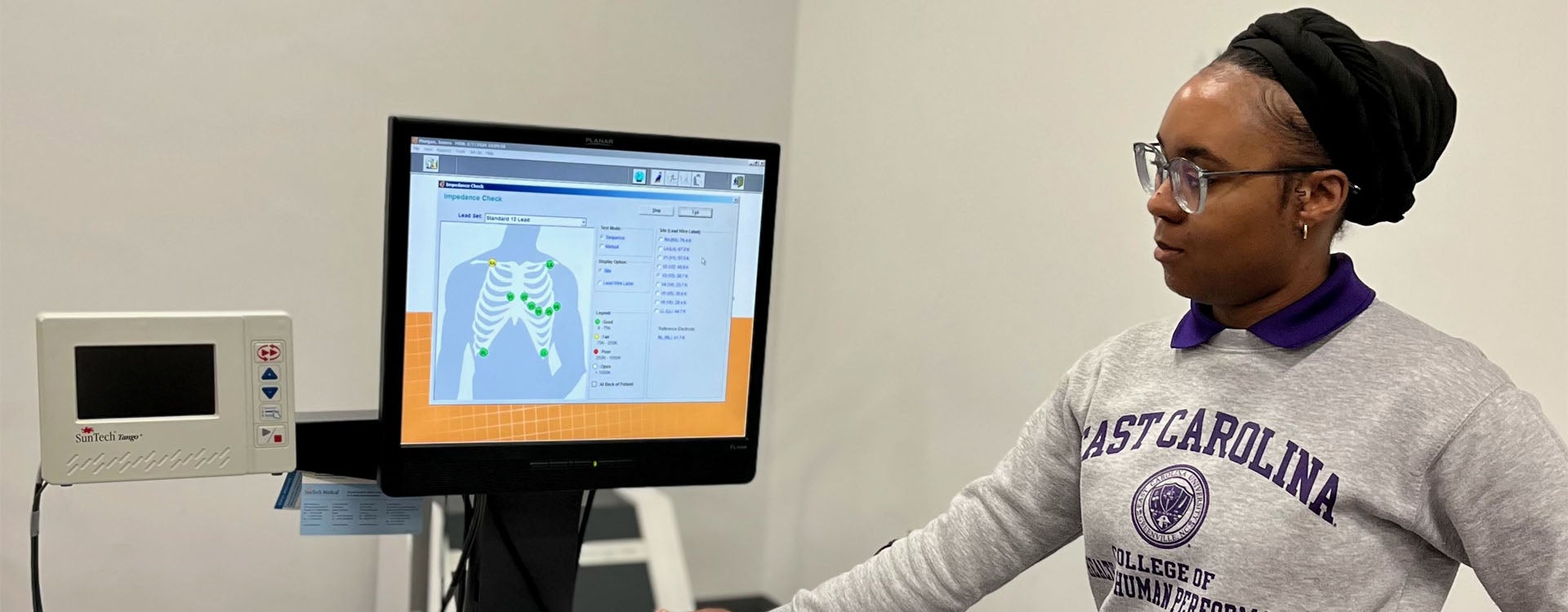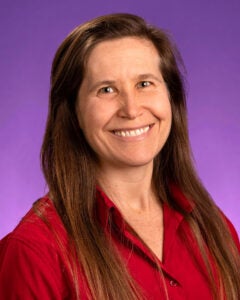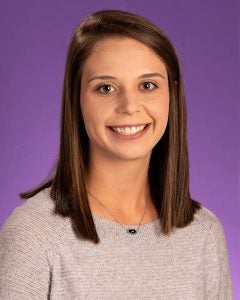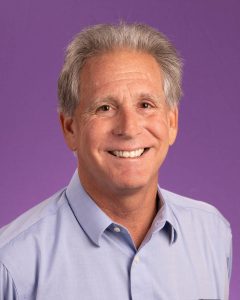Human Performance Lab
The Human Performance Laboratory (HPL) studies disease states affecting the human condition, such as obesity, cardiovascular disease, muscle wasting, the metabolic syndrome, and diabetes, and subsequently determine how a physically active lifestyle can aid in the prevention or as an intervention for these conditions. Our community outreach and services provide cardiovascular risk identification and reduction, body composition, bone density, cardiorespiratory fitness, and pulmonary function testing, and exercise training to community members including, but not limited to, fire departments, police departments, EMS responders and researchers across the ECU campus.
Student Research Opportunities
Our Student Research Opportunities provide translational research opportunities for undergraduate and graduate students, as well as post-doctoral fellows. The HPL is an integral part of the B.S. and M.S. degree in Exercise Physiology for which we provide assistantship opportunities for students who work directly in the HPL. Students in the Ph.D. program in Bioenergetics and Exercise Science are mentored and funded by HPL affiliated faculty.
Currently, many research projects utilizing the HPL focus on discerning how exercise impacts the underlying mechanisms linked with conditions such as obesity, muscle wasting, heart disease, type 2 diabetes, Metabolic Syndrome and negative aspects of the aging process.
Many of our graduate students receive HPL graduate assistantships to gain experience with our Community Outreach and Services program as well as research. Approximately 8-10 assistantships per year provide students with numerous opportunities to demonstrate how to successfully perform diagnostic testing, exercise prescriptions, and specialized research.
Community Outreach and Services
Cardiovascular Risk Identification and Reduction Program
The Cardiovascular Health Assessment Program is open to any member of the community. This program analyzes fitness levels, detects participants’ coronary heart disease risk status, and provides insight on modifying heart disease susceptibility. The following screenings are performed as part of the program:
- DXA Body composition and bone density
- Blood pressure
- Blood lipid profile and blood glucose
- ECG graded exercise stress test
- Physician exam
This comprehensive cardiovascular program goes beyond just an assessment. Participants receive an advanced report and explanation of their results, in addition to an individualized exercise prescription and lifestyle modification instructions. The cost of this program is $350 and is approved for reimbursement by NCFLEX.
HPL Exercise Membership at FITT Building
Individuals who have participated in the HPL’s Cardiovascular Risk Identification and Reduction Program are eligible for HPL Exercise Membership. The FITT (Fitness, Instruction, Testing and Training) Building houses our exercise facility and is only open to individuals completing that program and research participants. The exercise facility is well equipped with modern aerobic and resistance equipment and staffed to providing an exclusive exercise experience.
Police, Fire, and EMS services
The HPL provides assessments and physical examinations for local Police, Fire, and EMS departments. These assessments are performed as part of the hiring process for employees, as well as ongoing evaluation and screening throughout employment. The assessments consist of all screenings provided through the Cardiovascular Health Assessment Program. Additional screenings include vision assessment and pulmonary function testing. The HPL is partnered with local physicians who perform exams and review assessment results.
Body Composition and Bone Density Services
One of the services offered through the HPL is a Dual Energy X-Ray Absorptiometer (DXA) scan. DXA scans use low-dose X-ray to evaluate body composition and determine bone density. The scan is noninvasive and quick to perform. This advanced body composition analysis provides a report with information related to total body % fat, fat distribution, lean muscle mass, and risk for osteoporosis. The state of North Carolina requires physician authorization to scan using DXA. The current cost of a scan is $75.
Translational Research Core Services
The Human Performance Laboratory and its Translational Research Core Services supports the University mission 1) by supporting growth in research providing quality services with expert support, 2) by providing opportunities to support graduate students researchers through direct participation in the research services.
Services for research are primarily provided to the University community. Some services may be provided to external research entities as part of research collaborations with OSP approval.
Research funding within the University will drive demand for these services. These services are expected to be available on a continual basis with sporadic use depending on research funding, focus and recruitment strategies. The HPL may limit availability of services based on its capacity (personnel, space, equipment) which will be assessed prior to each new contract or agreement to provide services.
Current Research Services Fees
Contact Chuck Tanner for more information at 252-737-4683 (tannerc@ecu.edu)
Affiliated Faculty and Staff










